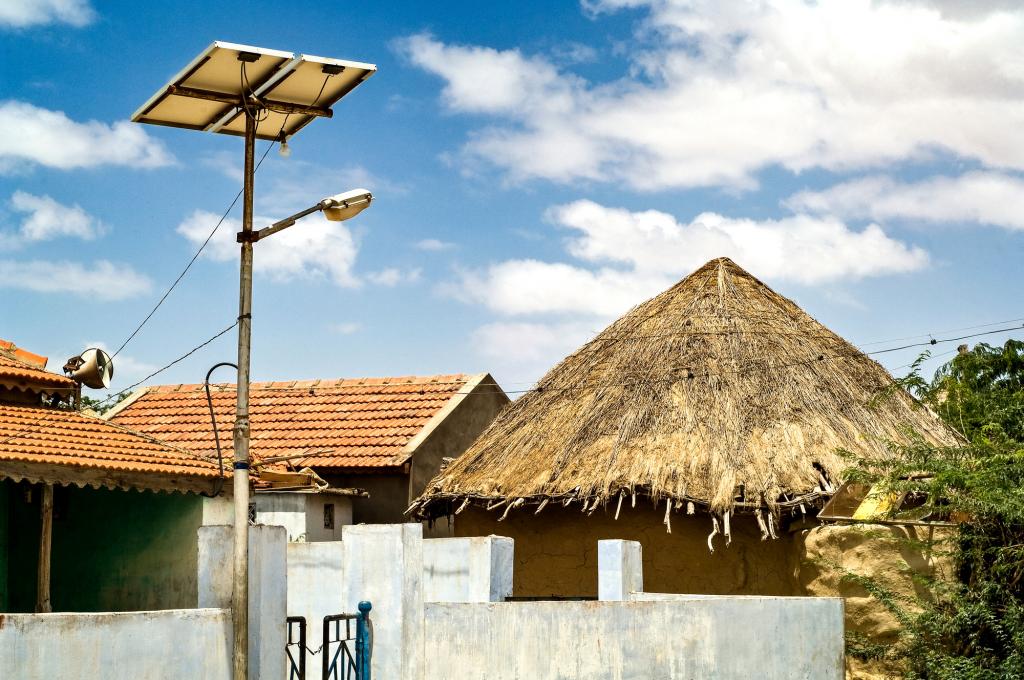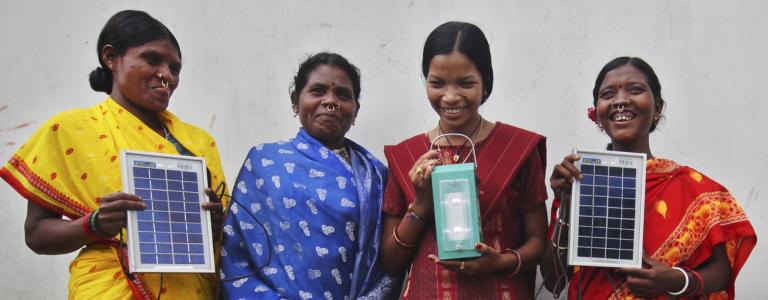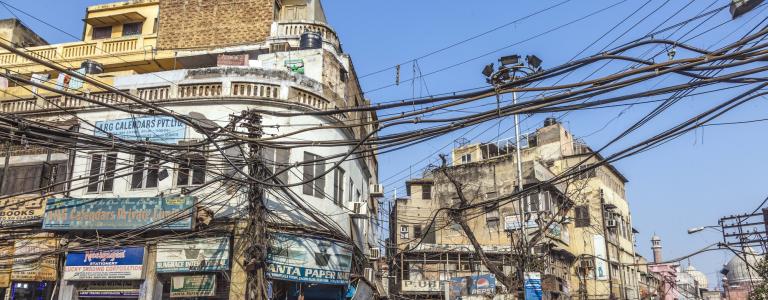Solar Power Is Just a Switch Away
Swapping subsidies from fossil fuels to clean options can make renewables the most viable alternative.
Kerosene is not an ideal fuel: it can lead to dangerous levels of indoor air pollution, offers poor lighting, emits greenhouse gases, and raises the risk of fire. But millions of households in India still rely on subsidized kerosene as an affordable and accessible source of light and cooking fuel, especially in parts of the country where an unreliable power supply—such as limited hours of electricity per day, blackouts, and voltage surges—make kerosene lamps an important source of backup for lighting.
Parts of India still experience unreliable power supply—including limited hours of electricity per day, blackouts, and voltage surges.
Kerosene subsidies cost the government of India USD 1.2 billion in the 2018–2019 fiscal year alone and represented 9% of all fossil fuel subsidies in the country. While energy subsidies can be important for expanding energy access and poverty reduction, they are also often improperly targeted, providing disproportionate benefits to the wealthiest consumers, while making little sense in a world shifting to low-carbon sources of energy to tackle climate change.
In April 2019, IISD and The Energy and Resources Institute (TERI) proposed shifting kerosene subsidies in India to off-grid solar products for marginalized households that rely on kerosene for lighting. Solar products are cheaper than kerosene over their lifetime, offer better lighting, and can even come with the ability to plug in and charge devices like mobile phones.
This is what's known as a "subsidy swap"—redirecting some of the savings from reforming fossil fuel subsidies to clean energy solutions.
Such approaches could prove to be very popular: a 2018 survey of 9,000 rural households in India found that 84% favoured government support for solar lanterns, even if it involved foregoing their kerosene subsidies.

“Almost everywhere, renewables are so close to being competitive that a subsidy swap tips the balance. It goes from being marginal to an absolute no-brainer.”
Thanks to IISD’s advocacy and awareness efforts, the subsidy swap idea is catching on. In April of 2019, India’s Ministry of New and Renewable Energy requested the Ministry of Petroleum and Natural Gas to divert part of the cooking gas and kerosene subsidy towards solar options. It is not clear if this will result in an explicit reallocation of funds from one budget line to another—swaps of this kind are rare. But IISD’s research shows that public resources are indeed shifting: kerosene subsidies fell from USD 7.7 billion in fiscal year 2014 to USD 0.9 billion in fiscal year 2019, while major new policies on solar irrigation and solar rooftop PV have been announced in coming years.
As renewable energy becomes cheaper, swapping subsidies from fossil fuels to clean options such as renewables and energy efficiency can tip the balance and turn them into the most viable alternative.
Governments are currently injecting, or planning to inject, trillions of dollars into the global economy to counteract the health, social, and financial shocks caused by the COVID-19 crisis. This unprecedented stimulus spending is an opportunity to accelerate the clean energy transition, and subsidy reform can help fund this spending.
Swapping at least some money from coal, oil, and gas subsidy reform to clean energy offers a real chance for countries across the world to build back better.
You might also be interested in
Sink, Swim … or Fight Back
After a devastating cyclone struck, the NAP Global Network—hosted by IISD—helped Fiji make a plan to build resilience.
Clean Power With a Clean Conscience
Lowering our carbon footprint cannot come at the expense of people in the world’s most vulnerable places.
Is It Raining Plastic?
We need more research to understand the effects of microplastics on our fresh water—and find solutions. That's where our team of experts come in.
G20 energy ministers call for cooperation on nuclear energy & low-emission hydrogen
The Group of 20 energy ministers' meeting concluded in Goa on July 22, 2023, with the final summary failing to include language on the phase-down of unabated fossil fuels.

